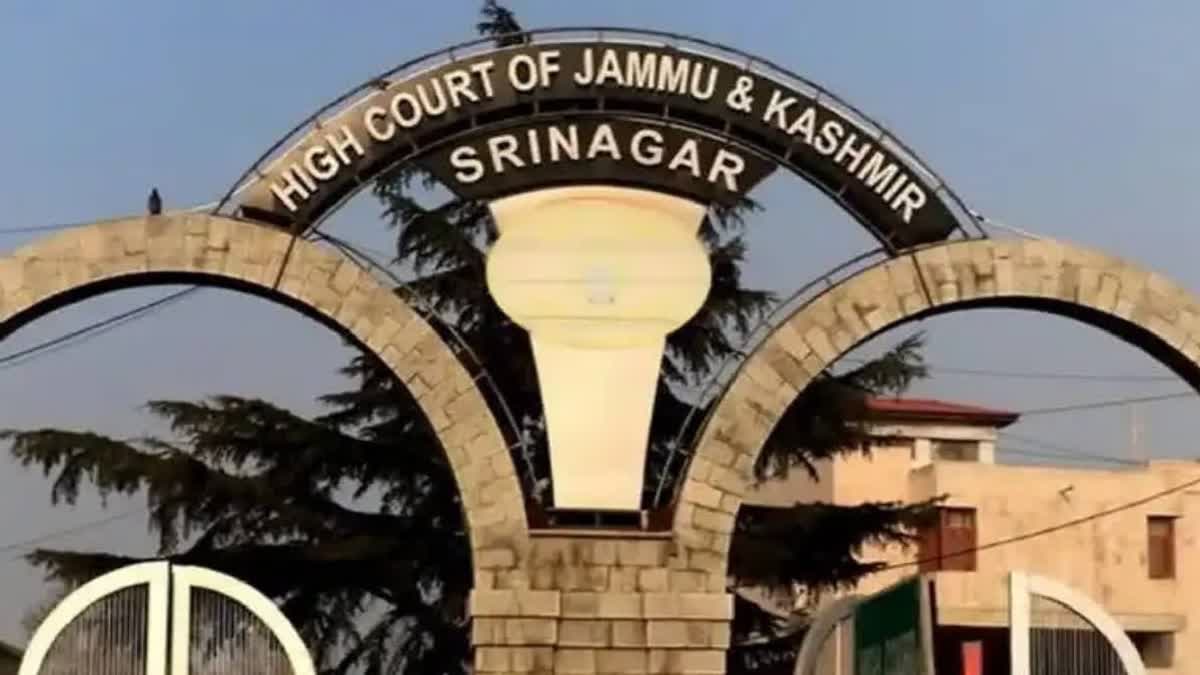Srinagar: In a landmark judgment, the High Court of Jammu & Kashmir and Ladakh has directed the central government to pay rental compensation for the use of private land by the Indian Army in the Karnah area of north Kashmir's Tangdhar since 1978.
The bench headed by Justice Wasim Sadiq Nargal emphasized the protection of property rights as both a constitutional and human right under Article 300A of the Indian Constitution while delivering the judgment.
"The right to property is now considered not only a constitutional or statutory right but also falls within the realm of human rights. Human rights have been considered in the context of individual rights such as the right to shelter, livelihood, health, and employment, and over the years, human rights have gained a multifaceted dimension," Justice Nargal said while disposing of the petition on November 20.
The petitioner, Abdul Majeed Lone had claimed ownership of 12 kanals and 14 marlas of land under Khasra No. 391 in Tangdhar, alleging that “it was occupied by the Indian Army in 1978 without compensation or acquisition proceedings.” Despite several appeals for compensation, including applications in 2004 and multiple representations, he contended that his property rights were ignored, Lone stated in his petition filed in 2014.
“The state, in exercising its power of eminent domain, may interfere with the right to property of a person by acquiring the same, but it must be for a public purpose, and therefore, reasonable compensation must be paid," the court noted.
However, the respondents, including the Deputy Commissioner of Kupwara, representatives of the Indian Army, and the Union of India through the Home Department, provided contradictory statements regarding the land's status, according to the judgment.
“A joint survey conducted in 2022 confirmed that the land had been under Indian Army possession since 1978 without compensation. It further observed that the landowner had never received any rent or compensation. The Indian Army denied occupation during the court proceedings, despite survey findings corroborating the petitioner's claims.”
“The facts mentioned above clearly reveal that the respondents have violated the basic rights of the petitioner and have deprived him of the valuable constitutional right without following the procedure as envisaged under law,” the court remarked.
Justice Nargal highlighted that deprivation of property without legal sanction is “unconstitutional” and a “violation of human rights.” He noted that property rights remain fundamental, even if reclassified as constitutional rights.
The court also directed the Deputy Commissioner of Kupwara to form a team to assess rental compensation for the land occupation since 1978.
“The Union of India is to pay the assessed compensation within one month of the report's receipt, with a six per cent annual interest for delays,” it said, adding that any further use of the petitioner's land must follow proper acquisition processes.
The court also directed the respondents to pay Rs. 1 lakh as token compensation for the violation of the petitioner's rights.
Read More



